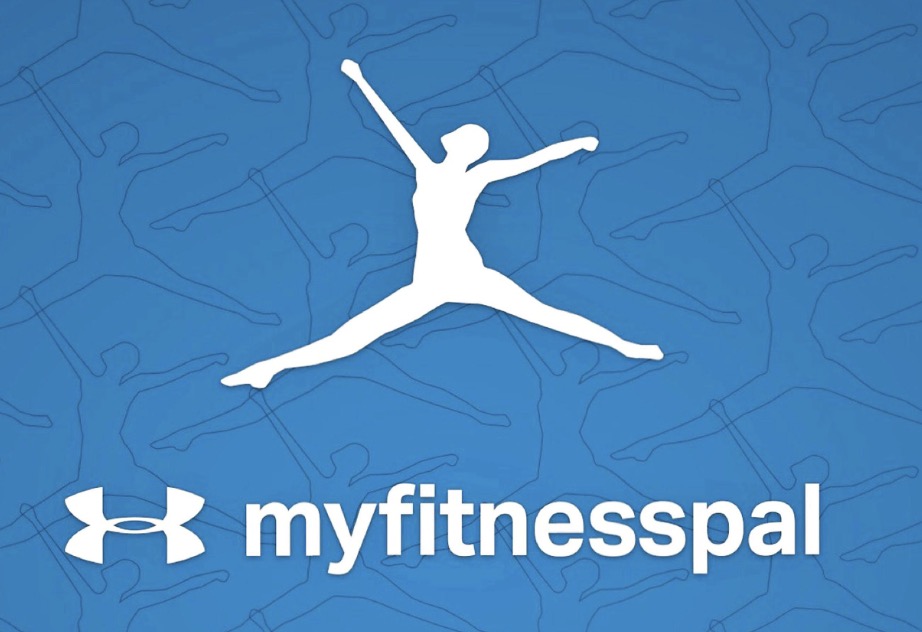When browsing through the app store, we are inundated with too many options of diet apps, so-called best free weight loss apps, yet are often disappointed to find out they don’t do exactly what we’re looking for. The main issue is that whilst some weight loss apps are fairly holistic, there is no perfect all-in-one solution. Instead, we need to combine just a handful of different apps that integrate well with each other and keep things simple. Here are the best weight loss apps on the market right now.
Reader's Roadmap
1. MyFitnessPal – Best for calorie counting
MyFitnessPal is first on the list for an obvious reason: it’s got 100m+ downloads. It’s worth the hype when it comes to counting calories, because a quick barcode scan or written search accesses its 14 million-strong database of foods and drinks. You can log exercise and monitor your calorie output, not just the input, but there are better weight loss apps for that.
Calorie counting is a somewhat controversial approach to weight loss, but its effectiveness on many millions of people isn’t up for debate. Even if you’re simply wanting to gauge how much you eat out of curiosity, there’s no better way. It’s also indirectly a great recipe app because you can save templates and group foods that you regularly eat to save time typing it in manually each day.
MyFitnessPal is a freemium model, and unless you want access to micronutrients that goes beyond calorie counting, the free version is pretty remarkable.
2. Google Fit – Best for tracking activity with wearables
When losing weight, you may also want to track how active you are, so you can see if burning calories is something you need to improve on. There are many step counters out there, but Google Fit is perhaps the most flexible. This is because it works with many different wearables, from Fitbit to Garmin, which is convenient.
Google Fit will let you know your physical activity, workout data, heart rate, sleep, and many other data. It can connect to MyFitnessPal too, which makes for a great pairing. Samsung watches only connect to Samsung Health, the story is similar with some other brands too. However, there are 3rd party workarounds, though the dedicated apps may provide smooth functionality.
It’s possible to set up notifications that remind you of your goals, such as daily steps, to motivate you throughout the day. The functionality of Google Fit is very holistic and impressive for an app that is totally free (with the caveat of data collection, of course).
3. Talkspace – Best for treating root causes of weight issues
Talkspace is an online therapy platform that uses cognitive-behavioral therapy (CBT) to help users address, understand, and treat mental health concerns. However, CBT’s main focus is to change negative thought patterns and behaviors, which is precisely what Talkspace’s platform facilitates through either texting or calls.
Therapy may seem like an overreaction to wanting to lose weight, but this is a dangerous narrative. It’s actually the most effective method studied. The platform has thousands of qualified therapists that are on-demand and easily accessible. They are the best people to speak to about body image concerns, emotional eating, and self-sabotage. Even if it’s simply wanting to be more disciplined, CBT is a powerful tool.
Talkspace is just one of many, as there are more mental health apps that offer CBT. However, it’s a good option for those wanting to use insurance to bear some of the $65 to $95 per week cost.
4. Fooducate – Best for education on weight loss
Simply following a plan or tracking calories isn’t necessarily a self-sustainable tool – what are you going to do if your phone breaks for a week? Or if you have less time and need to eyeball your meals?
Fooducate is a unique weight loss app that takes the approach of education. It does the role of MyFitnessPal calorie tracking quite well, with some great nutritional breakdowns and a letter grade (A to D) based on the food’s nutritional value. However, it goes a step further with great community support and educational resources, such as articles and tips on nutrition.
Fooducate has a free version, but the premium allows for meal planning, customized diets, and no ads.
5. Noom – Best for personalized coaching
Noom takes a more bespoke coaching approach to weight loss. The app has a comprehensive program that combines daily lessons and food tracking with personalized coaching to help make long-term changes. In this sense, it goes a step further than even Fooducate.
A color-coding system is employed for food classification, which helps users make better dietary decisions. The psychology-based approach provides daily lessons in emotional eating, goal-setting, and portion control. A personal goal specialist is assigned to each user and offers one-on-one support and accountability.
Unsurprisingly, this isn’t a free service despite the free trial. Whilst this isn’t a replacement for therapy, it’s a great middle-ground. The pricing structure is complicated, but the most popular subscription is a 4-month rolling plan at $42.5 per month.
6. Daylio Journal – Best for journaling your weight-loss journey
Daylio Is an easy-to-use journal app that allows staying on top of your weight loss journey in a more personal way. Journaling has been shown to increase mindfulness of eating habits, akin to CBT, which makes it a great way to tackle the issue of autopilot eating.
Daylio is primarily a mood tracker. At the end of each day, you say how you feel, along with what activities you’ve been up to. At the end of the year, you can see your “year in pixels”, where the daily mood is color coded. However, it might be possible to manually explore how your daily calorie intake on another app aligns with the mood tracker – do you eat more on your bad days? This is where CBT can help get to the root of the problem, though journaling can highlight it too.
Each day, there’s an option to put into written words how you felt – or how you did with your diet. There are also options to set fitness and health goals, too. Daylio is a free app.
7. Aaptiv – Best beginner exercise app
Whilst diet makes the biggest difference to our weight, exercise can certainly help shed some pounds. Aaptiv is a great option for beginners getting into fitness because it’s very instructional and caters to the novice who hasn’t got access to a gym.
Within the app, there are personalized fitness plan capabilities, along with over 4,000+ audio & video classes. Programs are provided based on your goals, and there’s a healthy dose of gamification to keep you motivated in achieving them.
Aaptiv costs $14.99 a month or $99.99 per year. For a free alternative, check out Nike Training Club, Sweat, and Strong.
Conclusion
It may seem obvious now, but there just isn’t a single ‘best’ app. However, combining a few from above can equip us with the tools and support in our weight loss endeavors. One recommended combination is to combine the personal coaching of Noom with the CBT offered by Talkspace – this will be the most powerful method for long-term results. However, the MyFitnessPal and Google Fit combination on top of this can cover all of your activity and dietary tracking, which is proven to have short-term results.







Leave a Reply
View Comments